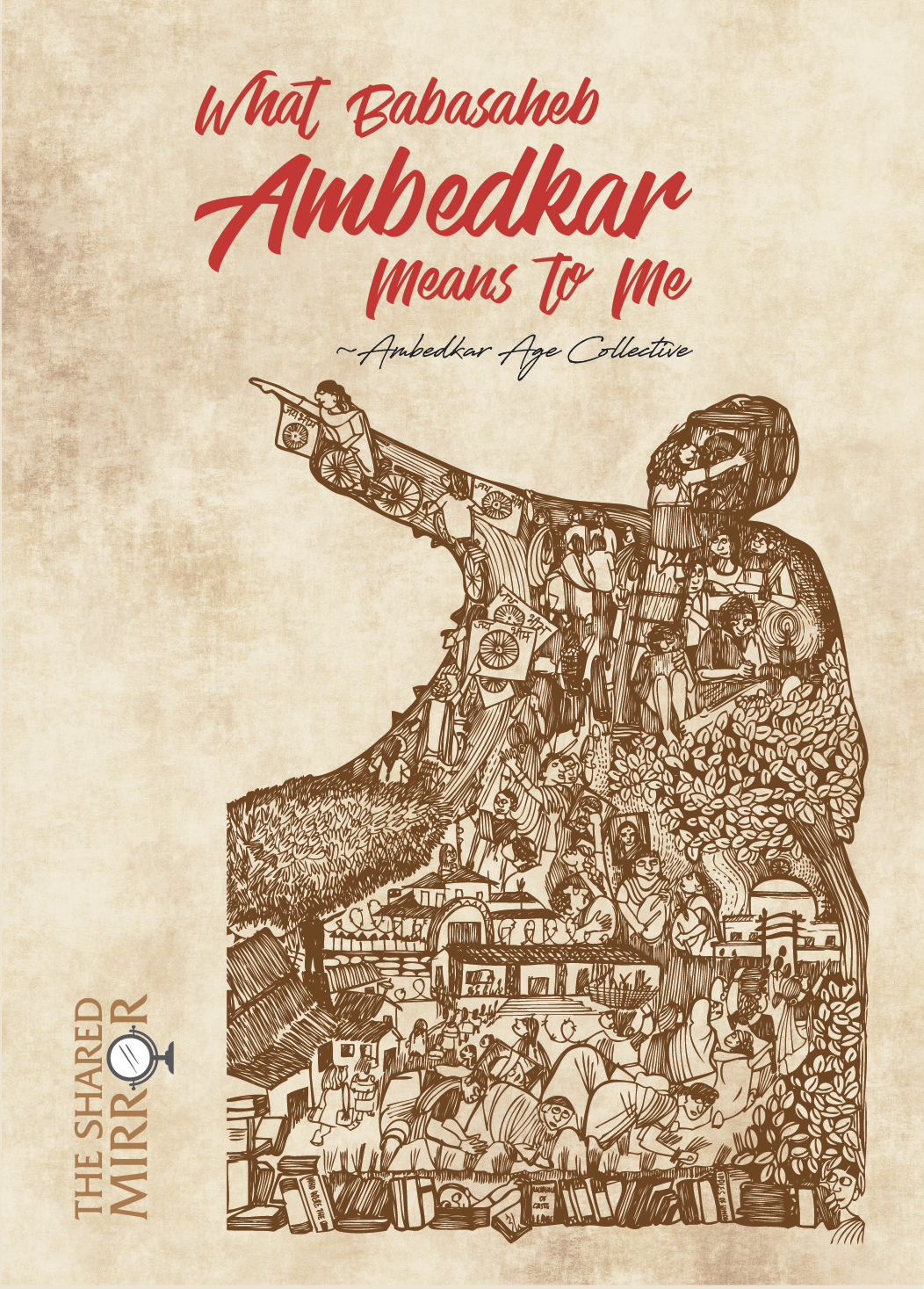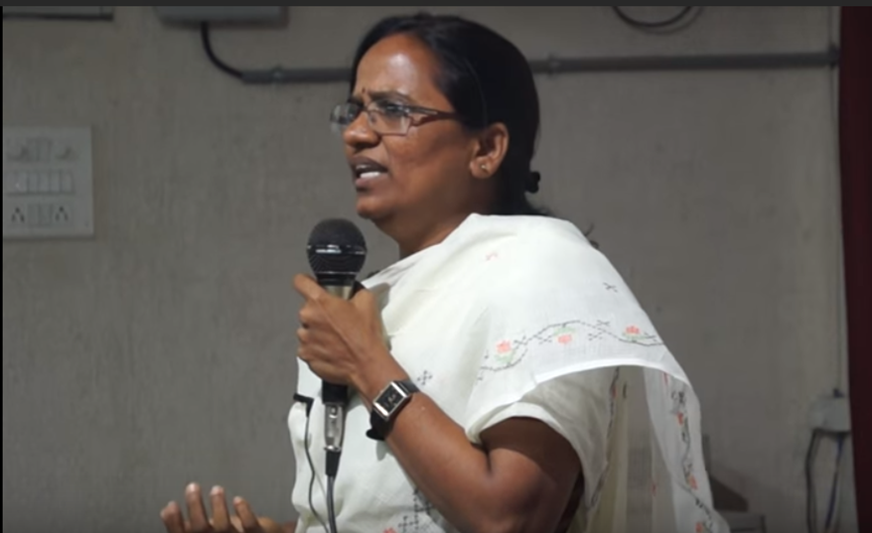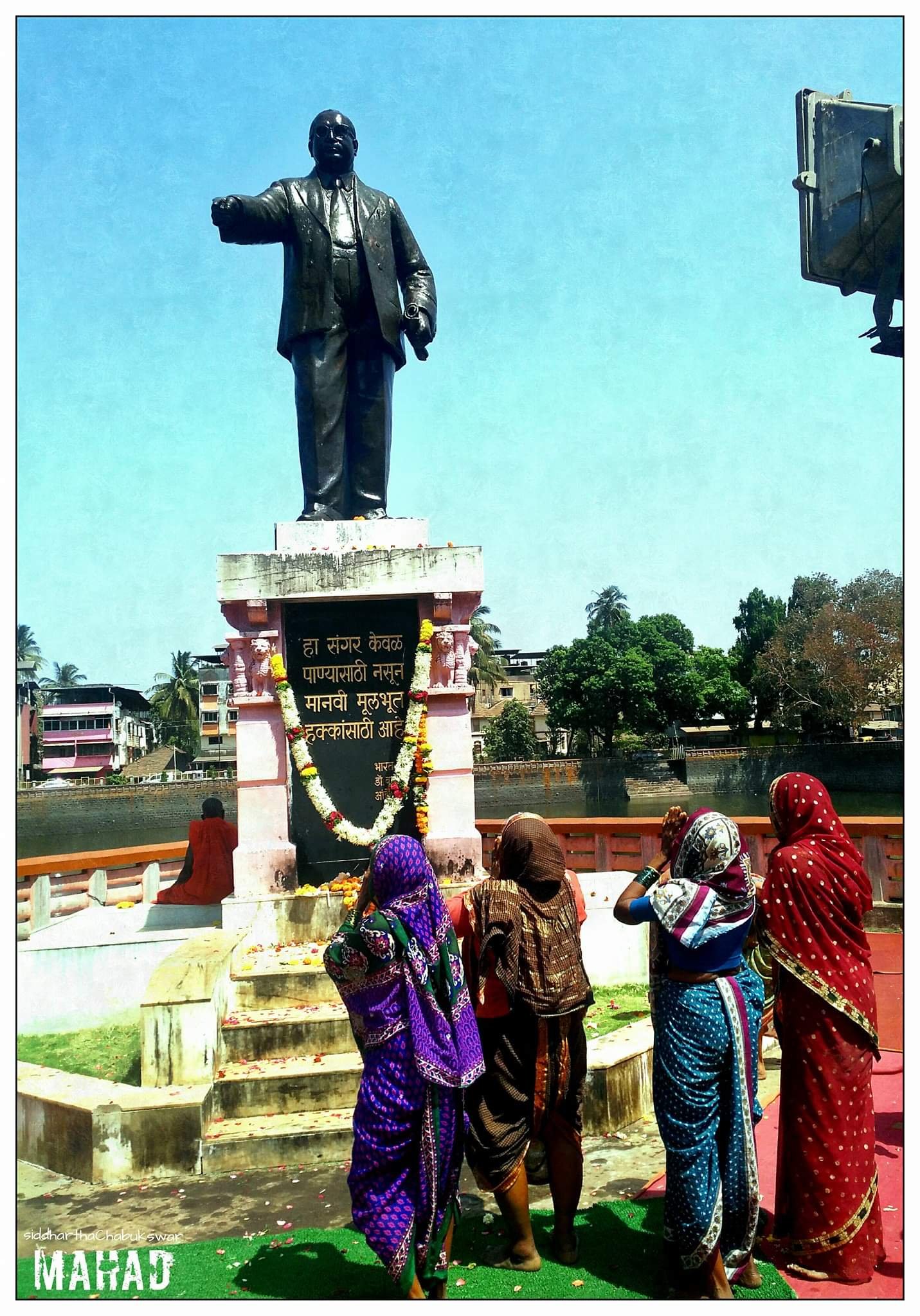An excerpt from Lakshmy Parvathy’s essay “Babasaheb Set the Bar High! ” in the book “What Babasaheb Ambedkar Means to me”
But people’s curiosity never ended, and they eventually found out! Speculations and discussions were held within our family as to how the information leaked. May be someone had met an old relative of ours? Or maybe, my school documents revealed it? But surprisingly enough, we enjoyed a bit of relief as we were told, ‘You do not look like Dalits.’ Consoled by that small distinction, we stood apart, different from the ‘Dalit-looking Dalits.’ It was rather astonishing to the world, as to how my parents could own ten cents of land and build a house in it, while Krishnan Panar, a person from our own community, still sang Panapattu in the month of Karkidakam to make his ends meet. Although I enjoyed for some years, a comfort in knowing that I was an outsider in my caste community, this started posing problems in the years of my under graduate studies. That was when my political self could not stand any longer, the deep-rooted caste prejudice when someone said that ‘You do not look like a Dalit’ or that I had acquired the qualities of an ‘upper’ caste person despite being a Dalit.
I was one of the many beneficiaries of affirmative action, which gave me, like many others, an opportunity to pursue my graduation in one of the premier institutes of the country. But getting an admission only marked the beginning of learning the art of survival and succeeding. The quality of life spent there was more like a constant struggle with many concerns, including issues with ease of communication, the ability to build a reliable social network, redefining the sense of self-worth, ability and feasibility to pursue my interests and the like. […]
Bourdieu argues that in the education system, language plays a central role in reproducing social inequalities from one generation to the next. Bourdieu looks analytically at an intersection of regional differences in French and standard language. He says that, a student who comes from the provinces to Paris to do the University studies feels intimidated amongst peers. Bourdieu enquires into what exactly this intimidation is and where it exists. He describes it as ‘symbolic violence’ that does not imply an act of intimidation on the part of the standard French Speaker. But the standard French speaker’s skill to handle the language and her reaction to the provincial dialect make the newcomer feel intimidated. Bourdieu adds that the non-standard speaker is involved in co-creating the intimidation in the sense that “the intimidation can only be exerted on a person predisposed to feel it, whereas others will ignore it. The cause of timidity lies in the relation between the situation or the intimidating person (who may deny any intimidating intention) and the person intimidated, or rather, between the social conditions of production of each of them.”
You can buy your copy of What Babasaheb Ambedkar Means to me here on amazon.in




